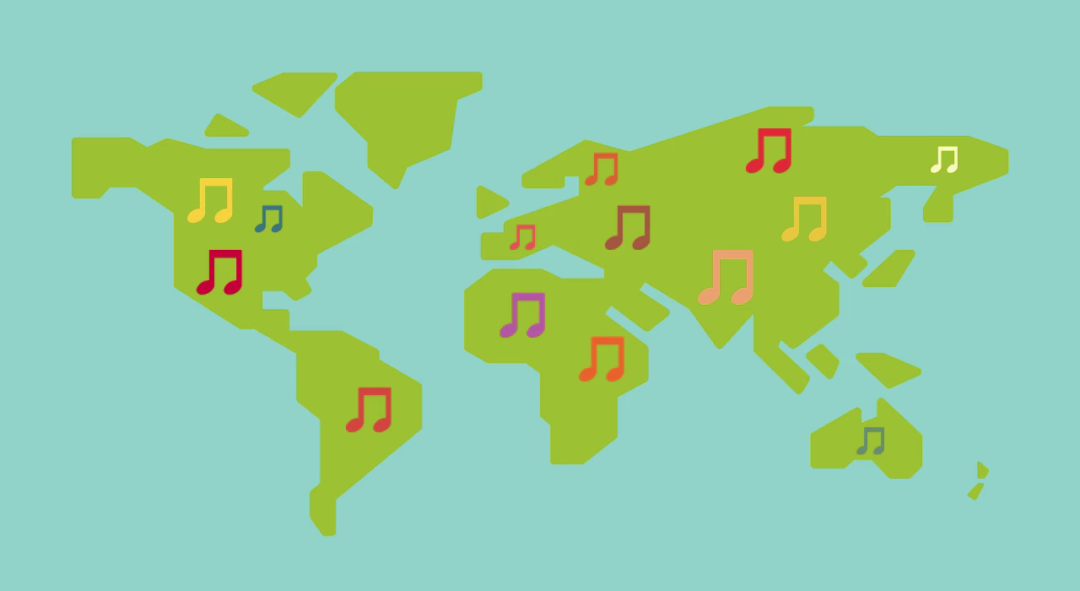Sing: Language, Culture and Music
Using music as a tool to learn a language and increase your fluency, but it can also give you some insight into different cultures.
Lets just say it; learning a foreign language is hard. Growing up in Canada, I had to take french classes for five years and it was hard. I still speak a little bit but I’m definitely not fluent. What I do remember, are the songs we would sing to conjugate verbs. Every now and then one of those songs will pop into my head and it amazes me that I still remember them! While those songs’ affect on teaching me french is impressive, music as a learning device can go even further!
Memory

Like I said earlier, music is a great way to learn and remember something. Have you ever heard a song while at the store and instantly you’re transported to a time when you were young? Or maybe it reminds you of someone you love but haven’t seen in a while. Music is great at making associative connections in our brains, and that’s large part of how we learn; taking new concepts and making connections with familiar ones. By creating songs out of familiar melodies, tunes and nursery rhymes, you give yourself a better chance of learning AND remembering what you’re learning! For example, in english speaking countries, many young children grew up saying their ABC’s to the tune of “Twinkle, Twinkle Little Star”. Even after they grow up, many adults when asked to say the alphabet, will launch into that familiar tune.
So how do you apply that in your own learning? If you’re struggling to remember certain aspects of the english language, like how many different kinds of coffee and tea there are for example, try making a song that goes to the melody of your favourite nursery rhyme. You might be surprised at just how well it works!
Pronunciation

Pronunciation is a difficult part of any language. Listening to people speak, sometimes it’s pretty easy to spot those that aren’t native speakers. They may be saying the right words, but the pronunciation isn’t there. While this generally isn’t a problem, mispronunciation can occasionally cause a communication breakdown. While watching movies and tv shows can definitely help with pronunciation and how the language is applied, music does have an advantage here; memory and singing! You’re far more likely to remember the lyrics to a song than you are to remember all of the lines from a movie. And one you’ve got the words memorized, you can sing along (even if you’re not a great singer). By singing, you can practice the nuances and inflections the singers of your favourite songs are using.
This is also a great way to expose yourself to some of the wide array of accents used in the english language. In the United States, there are lots of regional accents. Even New York City has a few different accents, and it’s one city! Exposing yourself to different genres and music from different countries but sang in the same language can prepare you for all of the different accents you might face in your career.
Definitions
- Lyrics- The words to a song
- Genre- Defines music with similar attributes
- Nuance- A subtle difference in or shade of meaning, expression, or sound
- Inflection- the modulation of intonation or pitch in the voice
文化

This is perhaps the most under-used aspect to using music as a language learning tool; it is a window into the cultures of the world and in the hospitality and tourism industry, understanding culture is important.
Music’s importance in culture can’t be overstated. Music can teach you about a culture’s history, about what’s important to people, about their favourite stories or activities and about the way live their lives and use their language. POP music is engrained in POPular culture. It has tremendous power over trends and the way people see the world around them. In english speaking culture, music can even influence the clothes they wear the car they drive, their political opinions, what they like or dislike and who their friends are. In any given culture, there are hundreds of sub-cultures and most of them have a genre of music that they consider their own, whether it’s pop, country, rock, electronic, folk or even bubblegum pop!
By listening to music from another culture, you are giving yourself a leg up in understanding some of the people from around the world that you’ll be in contact with, and it might give you some clues into the kind of service they might expect or the activities they might like to do.
Music’s applications in learning are profound but underused. There are so many ways to learn from music. Not only can it help your memory, but it can teach you how to speak and use the language. It can also teach you about the people that listen to it.
So grab some headphones, turn up the volume and start exploring! Find out what’s popular in other languages right now or ask somebody from a specific culture about what they listen to (In case you were wondering, I’m a big Bruce Springsteen fan). There are literally millions and millions of songs out there that are ready to teach you, so what are you waiting for? Start listening!